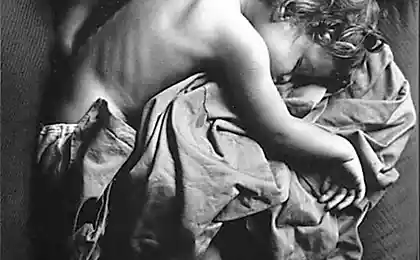254
11 Signs That You Believe Others More Than Yourself
If you recognize yourself in these points, immediately begin to build trust in yourself and your feelings.

Introduction: Why do we lose trust in ourselves?
Self-confidence is the foundation on which our confidence, decision-making and relationships with others are built. However, many people, without realizing it, begin to rely more on the opinions of others than on their own feelings. Why is this happening? This is often due to children’s attitudes, fear of mistakes, or social pressure. In this article, we will examine 11 signs that indicate that you believe others more than yourself, and we will tell you how to fix it.
11 Signs of Lack of Trust in Yourself
If you recognize yourself in these points, it is a reason to think and start working on strengthening your self-confidence.
1. You constantly ask for advice.
Even in small things, you turn to friends, colleagues, or relatives for help because you are unsure of your choice.
2. You're afraid of making a mistake.
Fear of doing something doesn’t paralyze you, and you prefer not to make a decision at all.
3. You compare yourself to others
You constantly look at other people’s achievements and feel that your successes are not good enough.
4. You ignore your feelings.
If you don’t like something, you convince yourself it’s “normal” or “right.”
5. You make excuses.
Even when you’re right, you’re looking for ways to explain your actions so you don’t get disapproved.
6. You avoid responsibility.
You prefer to have someone else make your decisions so as not to be responsible for them.
7. You depend on someone else's opinion.
Your self-esteem depends on what others think of you.
8. You don't trust your intuition.
You believe that the logic and opinions of others are always more important than your inner feelings.
9. You're afraid to say no.
You agree to what you don’t like so as not to offend the other person.
10. You underestimate your achievements.
Even when you’re successful, you think it’s just “luck” or “helping others.”
11. You feel insecure in your relationship.
You constantly doubt that you are worthy of love and respect.

How do you start trusting yourself?
If you recognize yourself in these signs, do not despair. Self-confidence can be developed. Here are a few steps to help you get started:
1. Listen to your feelings.
Start noticing how you feel in different situations. Your emotions are an important signal that cannot be ignored.
2. Practice decision-making
Start small: choose what to wear or what to order in a cafe. Gradually move on to more important decisions.
3. Stop comparing yourself to others.
Your journey is unique. Compare yourself to yourself in the past.
4. Learn to say no.
Practice refusing when something goes against your interests.
5. Praise yourself.
Notice even small successes. This will help to build confidence in your abilities.

Conclusion: Self-confidence is the path to freedom.
Self-confidence is not an innate quality, but a skill that can be developed. If you recognize yourself in the signs described, this is the first step to change. Start small: listen to your feelings, make decisions, and praise yourself for success. Over time, you will feel your confidence grow and with it your quality of life. Remember: trusting yourself is not selfishness, but taking care of your emotional health.

Introduction: Why do we lose trust in ourselves?
Self-confidence is the foundation on which our confidence, decision-making and relationships with others are built. However, many people, without realizing it, begin to rely more on the opinions of others than on their own feelings. Why is this happening? This is often due to children’s attitudes, fear of mistakes, or social pressure. In this article, we will examine 11 signs that indicate that you believe others more than yourself, and we will tell you how to fix it.
11 Signs of Lack of Trust in Yourself
If you recognize yourself in these points, it is a reason to think and start working on strengthening your self-confidence.
1. You constantly ask for advice.
Even in small things, you turn to friends, colleagues, or relatives for help because you are unsure of your choice.
2. You're afraid of making a mistake.
Fear of doing something doesn’t paralyze you, and you prefer not to make a decision at all.
3. You compare yourself to others
You constantly look at other people’s achievements and feel that your successes are not good enough.
4. You ignore your feelings.
If you don’t like something, you convince yourself it’s “normal” or “right.”
5. You make excuses.
Even when you’re right, you’re looking for ways to explain your actions so you don’t get disapproved.
6. You avoid responsibility.
You prefer to have someone else make your decisions so as not to be responsible for them.
7. You depend on someone else's opinion.
Your self-esteem depends on what others think of you.
8. You don't trust your intuition.
You believe that the logic and opinions of others are always more important than your inner feelings.
9. You're afraid to say no.
You agree to what you don’t like so as not to offend the other person.
10. You underestimate your achievements.
Even when you’re successful, you think it’s just “luck” or “helping others.”
11. You feel insecure in your relationship.
You constantly doubt that you are worthy of love and respect.

How do you start trusting yourself?
If you recognize yourself in these signs, do not despair. Self-confidence can be developed. Here are a few steps to help you get started:
1. Listen to your feelings.
Start noticing how you feel in different situations. Your emotions are an important signal that cannot be ignored.
2. Practice decision-making
Start small: choose what to wear or what to order in a cafe. Gradually move on to more important decisions.
3. Stop comparing yourself to others.
Your journey is unique. Compare yourself to yourself in the past.
4. Learn to say no.
Practice refusing when something goes against your interests.
5. Praise yourself.
Notice even small successes. This will help to build confidence in your abilities.

Conclusion: Self-confidence is the path to freedom.
Self-confidence is not an innate quality, but a skill that can be developed. If you recognize yourself in the signs described, this is the first step to change. Start small: listen to your feelings, make decisions, and praise yourself for success. Over time, you will feel your confidence grow and with it your quality of life. Remember: trusting yourself is not selfishness, but taking care of your emotional health.























